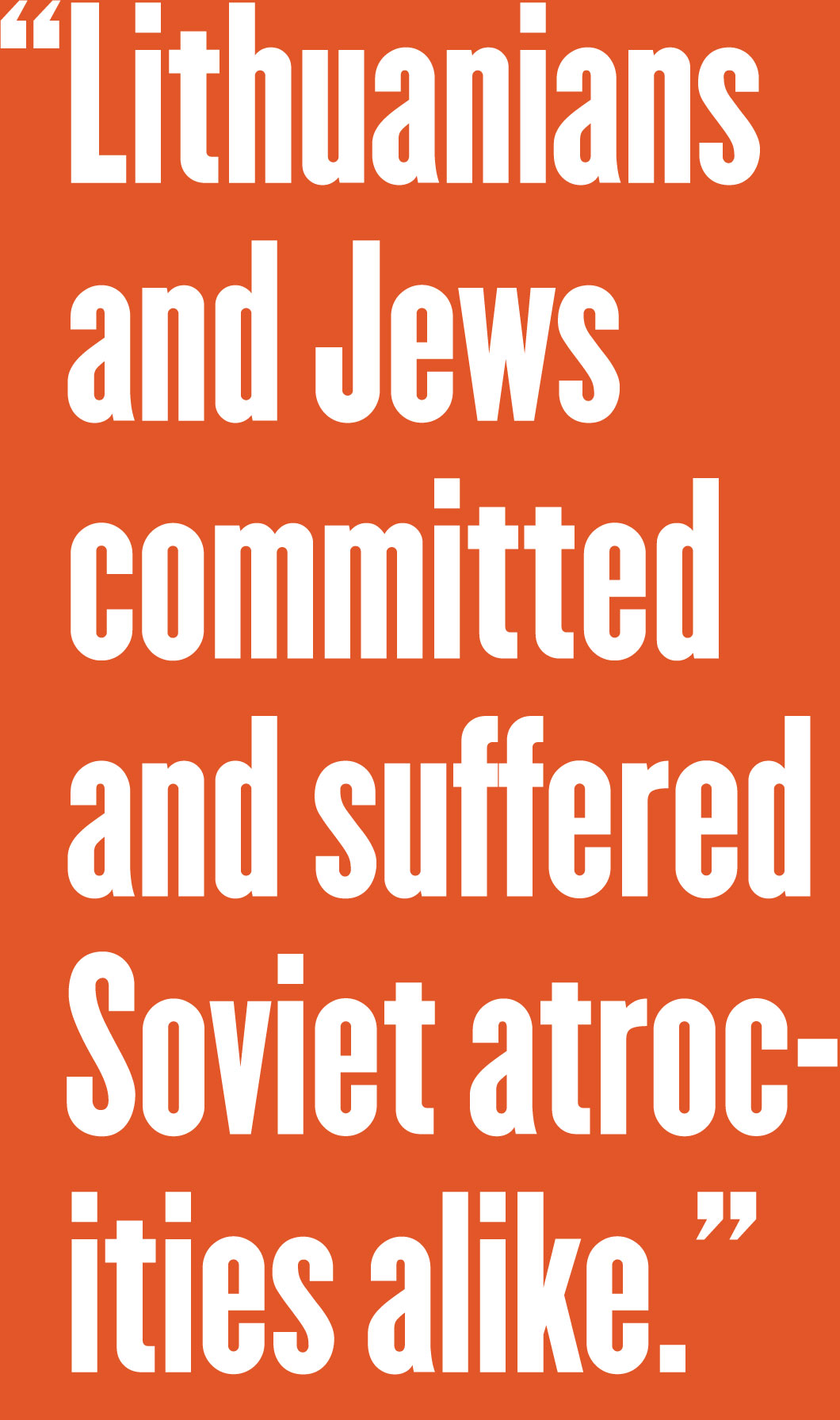
Myths and Reality about Lithuanian Jews and the Soviet Mass Deportations of June 1941
The pernicious myth that Jews were responsible for the mass repressions committed by the Soviets during the first year of the occupation of Vilna has plagued relations between Lithuanian Jews and non-Jews from 1941 to, perhaps, the present. This myth includes the false allegation that Jews were responsible for the mass deportation of 17,500 men, women, and children by the Soviets that took place before Nazi troops invaded the USSR on June 21, 1941.
The Nazis and their local collaborators flooded Lithuanian media with stories blaming Soviet atrocities on Jews, and suggested that Lithuanians must seek revenge for these crimes. This article below, for example, was published in July 1941, just a few weeks after the deportations, and as the mass killing of Jews in the Holocaust accelerated.
On the red horse of Communism, the Jews began to trample upon the Lithuanian nation, to suppress Lithuanian identity in the cities, to push Lithuanians out of offices and enterprises, to Russify and to Judaize them! Thousands of grey-haired women are now gazing, with tears in their eyes, along the road by which their sons – betrayed by Jews – were transported away. Thousands of orphans and unhappy deportees are screaming: “Eliminate the Jews!” 1
The truth, of course, is markedly different. The Soviets repressed and deported subjects of occupied Vilna based not on racial, but rather social, criteria. Ethnic Lithuanians and Jews were among those who committed and suffered Soviet atrocities alike.
It is true that Jews, as a percentage of the population, were somewhat over-represented in certain Communist Party structures, especially the Komsomol youth organization. During the interwar period, Jews suffered from discrimination in education and on the job market, while the Soviets preached equality. Soviet slogans appealed especially to the young and socially disadvantaged Jews who yearned for emancipation.2
But it is equally true that Jews, as merchants and professionals who lived predominantly in urban areas, were more likely to be deported or have their property confiscated by the Soviets than other ethnic groups.
Vilna in particular had become a significant base of operations for religious Jews, Zionists, and Bundist activists who had fled the parts of interwar Poland that were occupied by Germany and the Soviet Union. These Jews were specifically targeted by the Soviet secret police.3
1 Vytautas Labūnaitis, “The Enemy of our Nation,” Naujoji Lietuva (July 1941).
2 Nijolė Maslauskienė, “Lietuvos komjaunimo sudėtis 1940 m. Birželio–1941 m. Birželio mėn. „Genocidas ir rezistencija“ 2016 m. Nr. 1(39).
3 A secret police report issued on 29 March 1941 provides significant detail on the persecution of Jewish political organizations in Lithuania, and Jewish resistance to Soviet rule. LCVA, f. 378, ap. 10, b. 225, l. 769.
Violeta Davoliūtė, Ph.D., is a Professor at the Vilnius University Institute of International Relations and Political Science, and Senior Researcher at the Lithuanian Cultural Research Institute.